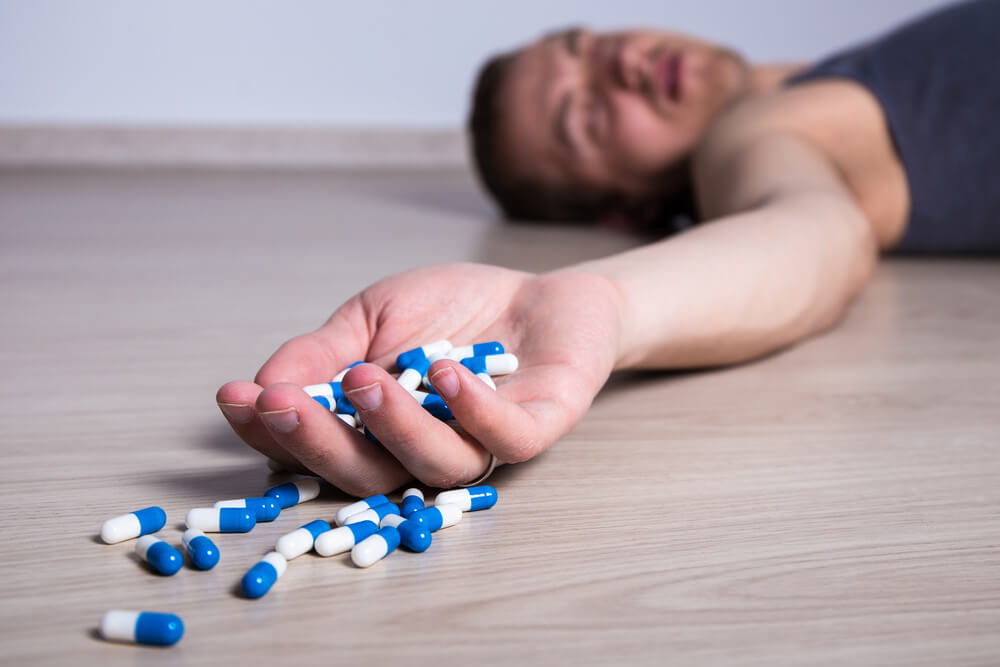
Drugs You Can Overdose On: Discover the Most Common
Legacy Healing Center Blog
There is no shortage of drugs that can potentially be fatal for users.
Common overdose drugs are not just drugs that are found on the street but are oftentimes prescription medications and over-the-counter pills.
Many medications can be additive if taken in a way other than advised. While street drugs aren’t the only drugs you can overdose on, they are the types of drugs that tend to have fatal outcomes. With the growth of drug overdose over the years, we will be looking at the most common overdose drugs which can include pills, over-the-counter medications, and street drugs.
If you or someone you love needs help with addiction, call 954-994-2965 today to speak with a treatment specialist.
While not all overdoses lead to death, some of the common overdose drugs can be fatal. Some of the easiest pills to overdose on are prescription pain relievers and can be easily acquired.
Other common drugs you can overdose on are fentanyl, heroin, cocaine, and methamphetamine. These types of drugs are dangerous because they contribute to the majority of overdose deaths with benzodiazepines and antidepressants coming in just after the others listed.
Heroin is one of the worst drugs that has affected our country in the form of a crisis, taking the lives of more than 20,000 individuals a year.
Heroin is illegal, addictive and dangerous and can easily lead to overdoses that resemble the effects of the drug which makes it even more dangerous for its users. A few ways you can notice a heroin overdose is by noting the individual having problems:
- Breathing
- Discolored tongue
- Small pupils that look like pinpoints
- Blue fingernails and lips
- Delirium
- Disorientation
Prescription pain relievers are the easiest pills to overdose on and have led to an incredibly high percentage of unintentional overdose deaths. Among the most common pills to overdose on are Vicodin, OxyContin, and Demerol. These medications are available on prescription only and used to treat pain, especially after surgery.
These pills have become common overdose drugs because they are highly addictive and can easily find their way to the street due to overprescribing. A few ways you can notice a prescription pain reliever overdose is by noting the individual having problems with:
- Vomiting
- Nausea
- Low blood pressure & weak pulse
- Seizures
- Shallow breathing
- Blue fingernails and lips
Cocaine, while considered a drug you can overdose on, is a stimulant that has shown a rise in use over the last ten years. The problem with cocaine is that when individuals use it, they develop a tolerance for it making them use more each time they want to get high.
Cocaine is commonly snorted but can also be injected and when cocaine is injected it has a higher chance of overdose. Cocaine can also be mixed with other dangerous drugs that make it dangerous to users because they are not always aware of what is in it. A few ways you can notice a cocaine overdose is by noting the individual with some of the following signs:
- Overly anxious or agitated
- Enlarged pupils
- Having chest pain
- Heart attack signs
- Sweating
- Fever
- Irregular heartbeat
- Seizures
Methamphetamine is another one of the common drugs you can overdose on and is a highly addictive stimulant that can quickly alter the brain giving users an intense high. Methamphetamine is often abused because as quickly as the high comes, it goes, leaving users needing more to avoid crashing.
Methamphetamine overdose can have fatal effects on the body as well as long term psychological effects on the brain. A few ways you can notice a methamphetamine overdose is by the individual showing signs of:
- Chest pain
- Problems breathing
- Unresponsiveness
- Heart attack
- Paranoia
- Seizures
- Stomach pain
As noted above, not all overdoses are fatal but they can have life-altering effects for the future. If you believe you may be suffering from drug addiction, or someone you love, seeking medical help can save their life by identifying their drug use and reaching out to the right facility for help.
Reach out to us and call 954-994-2965 today to speak with a treatment specialist.